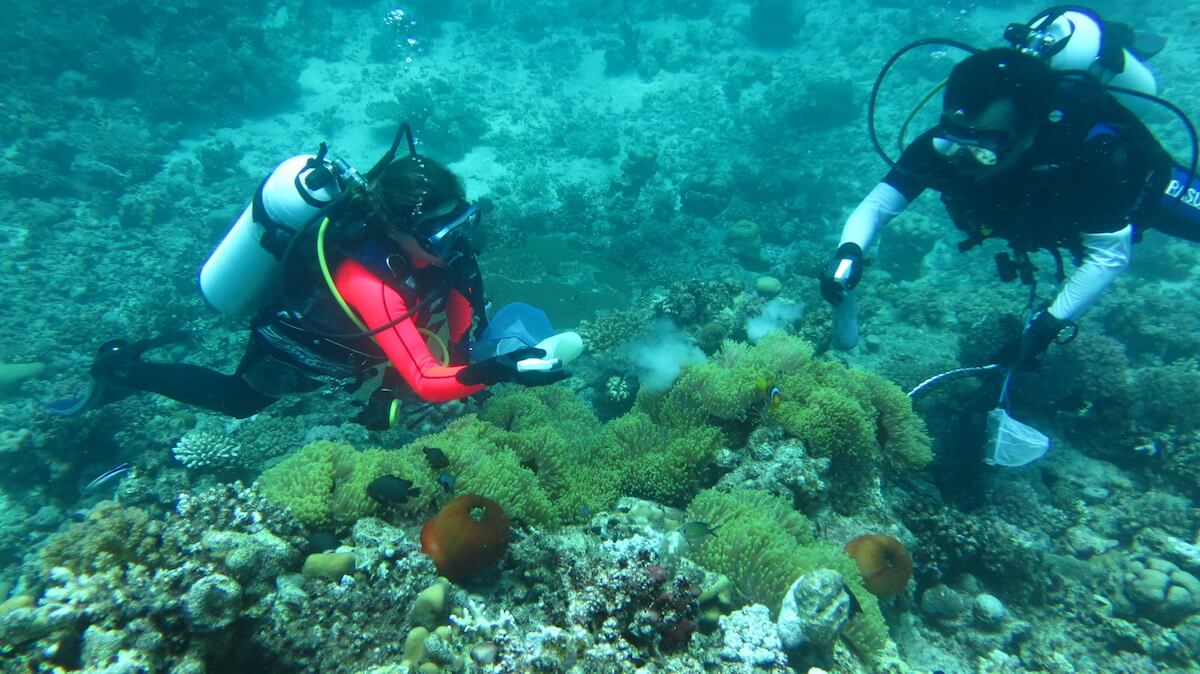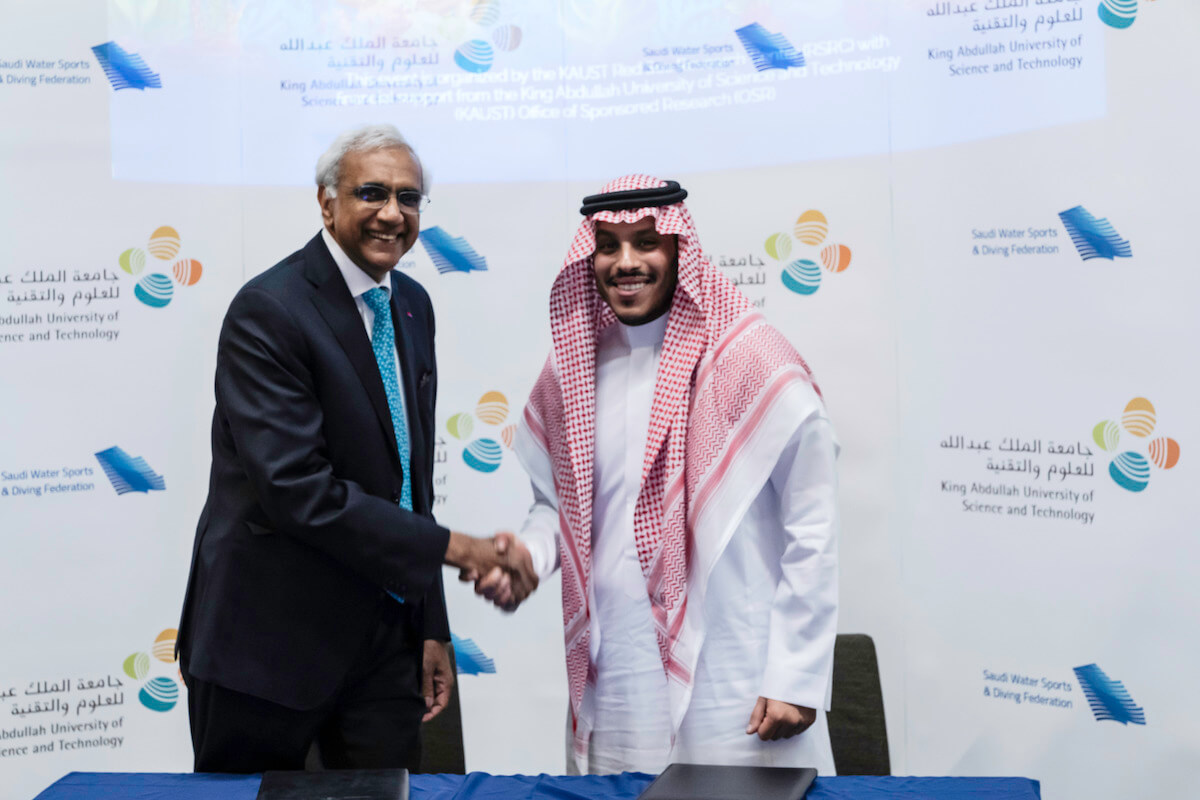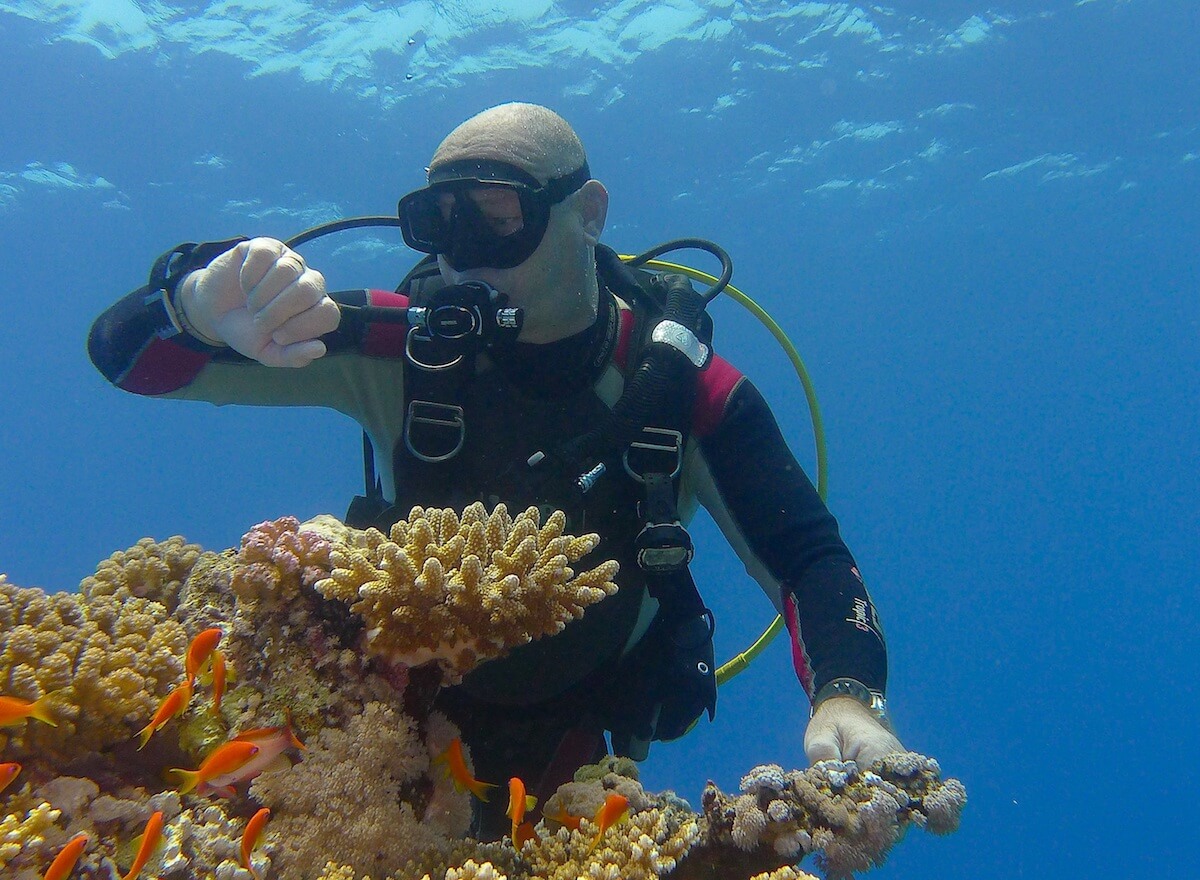KAUST collaborations spearhead scientific diving in the Kingdom

Through the University's membership with the American Academy of Underwater Sciences, KAUST is able to provide scientific diver training and certification. Pictured here are two University scientific divers collecting lab work samples at Al-Fahal dive site. Photo by David John Pallett.
By KAUST Core Labs
KAUST recently became an organizational member of the American Academy of Underwater Sciences (AAUS), a nonprofit institution dedicated to establishing and maintaining standards for scientific diving, including procedures and guidelines for dive safety and standards for the training and certification of scientific divers.
As a member of AAUS, the University—represented by the KAUST Coastal and Marine Resources Core Lab (CMR)—is now able to provide scientific diver training and certification and is currently the only entity in Saudi Arabia with such a license. Through the University's membership, KAUST-trained divers may now easily dive at other member institutes, thereby facilitating research collaborations and ensuring that best practices are shared around the world.

Yves Gnanou (left), KAUST distinguished professor of chemical science and the University's current acting vice president for Academic Affairs, and HRH Prince Sultan Bin Fahd Bin Salman Al Saud (right), chairman of the Saudi Water Sports & Diving Federation, sign a Memorandum of Understanding on March 11 on the University's campus. Photo by Andrea Bachofen-Echt.
The KAUST team is now able to offer expertise and collaborate with SWSDF to implement policies, regulations and procedures for scientific diving in the Kingdom.
"Part of our job is to ensure that we include all diving activities, such as scuba [diving], technical [diving], freediving and of course scientific diving. We need to define the policies and procedures for these activities, [and] here [is] where we need KAUST's support," stated Thamer Habis, managing director of SWSDF. "HRH Prince Sultan Bin Fahd Bin Salman Al Saud…is completely [sure] that KAUST is the best place when it comes to this expertise. KAUST's partnership with AAUS has been beneficial, and I believe [KAUST will] be an excellent hub for scientific diving in the Kingdom."

Scientific diving is an important aspect of the University's research operations. Here, a KAUST scientific diver examines coral specimens. Image courtesy of KAUST Coastal and Marine Resources Core Lab.

